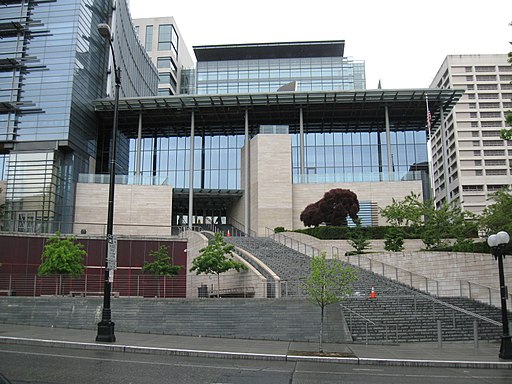Katie Wilson and incumbent Bruce Harrell defeated seven other candidates in the August 5 nonpartisan primary election for mayor of Seattle. Wilson received the most votes with 48.1% to Harrell's 43.6%. The general election is scheduled for November 4, 2025.
Harrell was first elected in 2021, when he defeated M. Lorena González 58.6%-41.2%. The last incumbent Seattle mayor to win re-election was Greg Nickels in 2005.
Four candidates — Wilson, Harrell, Ry Armstrong, and Joe Mallahan — led in media attention and campaign fundraising. Although the election was nonpartisan, all four candidates were Democrats. The section below includes a breakdown of each noteworthy candidate. To read more about how Ballotpedia defines noteworthy candidates, click here.
- Wilson was an activist and the general secretary of the Seattle-based Transit Riders Union. Wilson's campaign website said she would "open 4,000 new units of emergency housing and shelter in four years" and support policies challenging the Trump Administration. The King County Democrats and the Transit Riders Union endorsed Wilson. As of July 2, Wilson raised $450,000 and spent $60,000.
- Before he was elected mayor, Harrell was a lawyer and a member of the Seattle City Council from 2008 to 2020. Harrell ran on his record. His campaign website said he would prioritize "a transportation system focused on safety, sidewalks, road infrastructure, bus and light rail," and support policies challenging the Trump Administration. Washington Gov. Bob Ferguson (D), Attorney General Nick Brown (D), and U.S. Sen. Maria Cantwell (D) endorsed Harrell. As of July 2, Harrell raised $450,000 and spent $132,000.
- Armstrong was the co-executive director of Sustainable Seattle and a member of Actors’ Equity Association's National Council. Armstrong’s campaign website said Armstrong would support "policies that prioritize fair wages, safe working conditions, and the right to organize in Trump’s America" and invest in childcare. The Democratic Municipal Officials, the LGBTQ+ Victory Fund, and Run for Something endorsed Armstrong. Armstrong raised $101,104.47 and spent $81,000.
- Mallahan was the former vice president of business development at T-Mobile and ran for mayor in 2009. In the 2009 general election, Mike McGinn defeated Mallahan 51.14%-47.65%. Mallahan's campaign website said he would implement a community policing model, invest in alternative crisis responses, and participate in 50 patrol ride-alongs in his first year as mayor. As of July 2, Mallahan raised $116,000 and spent $11,000.
All four candidates also listed public safety and housing as priorities on their campaign websites.
Seattle voters also approved three ballot measures in February 2025, including Proposition 1A, a citizen initiative that established a new tax to fund the city's new social housing developer. Proposition 1A appeared on the ballot along with Proposition 1B, which the Seattle City Council and the mayor referred to the ballot as an alternative measure. Proposition 1B would have used existing payroll expense tax revenues from the next five annual budgets to fund the social housing developer. Voters approved Proposition 1A and defeated Proposition 1B 63.1%-36.9%. Wilson, Armstrong, and Mallahan all said they supported Proposition 1A, while Harrell supported Proposition 1B.
This election shared the ballot with Proposition 1, which asked voters to decide if the city should replace an expiring levy to fund the city's public campaign finance program. Click here to learn more. Seattle is also holding elections for city attorney and city council in 2025. Click here to learn more about those races.
The filing deadline for this election was May 9, 2025. As of 2025, Seattle does not have term limits for the position of mayor. Mayors serve a four-year term.


